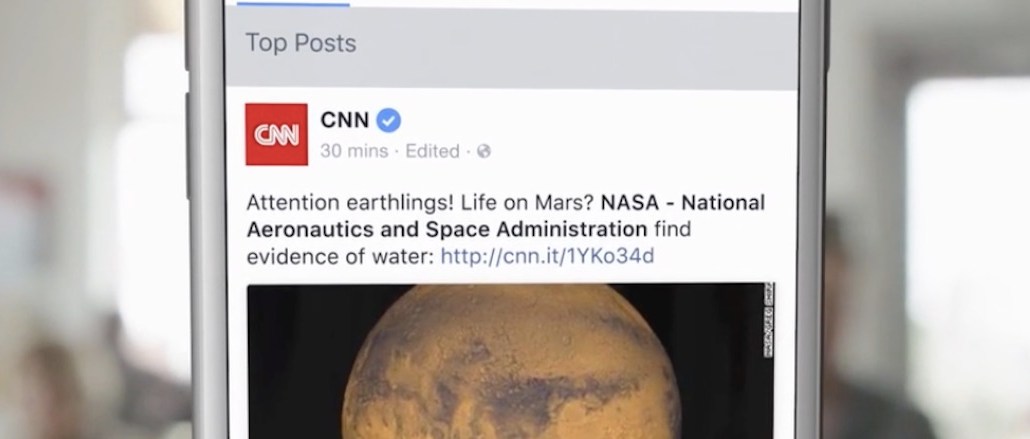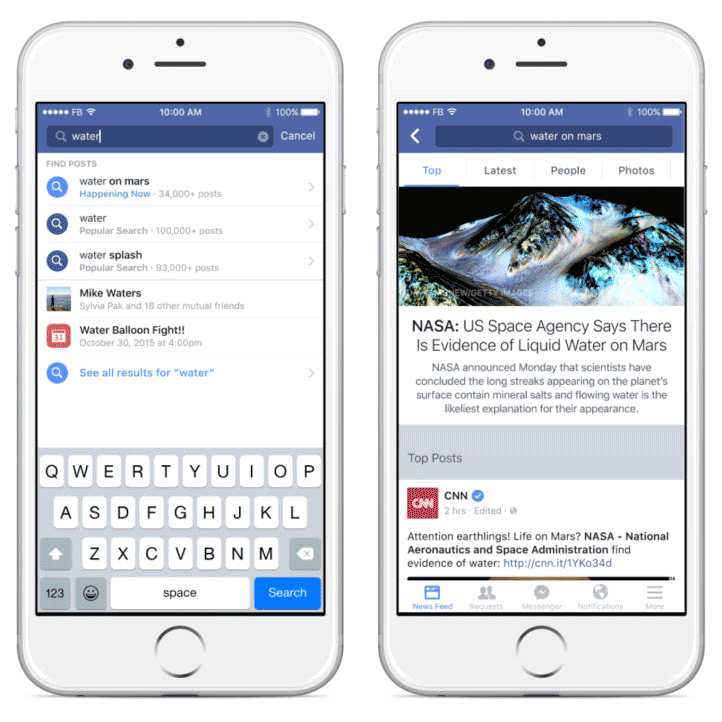Hear from execs at The New York Times, Thomson Reuters, Trusted Media Brands and many others

Facebook has officially made it impossible to hide from it.
Starting today, its search bar is now capable of retrieving every public post ever made — that’s 2 trillion of them. It’s a major step in making Facebook’s search tool relevant when finding breaking news and trending topics, two areas dominated by Google and Twitter.
Previously, searching on Facebook would return Pages a user liked or friended. Now it will return basically everything, but displayed in a more organized manner.
For example, searching “Benghazi Committee” pulls up results from people “Involved in This Story” (in this instance, a post from Sen. Harry Reid); “Top Posts” from publishers that I both follow and don’t; and posts from friends. Lastly, there’s a “Public Posts” section that retrieves the “most recent and relevant” messages.
Here’s what it looks like in action:

Facebook users make 1.5 billion searches each days, it says in a blog post, the aim is to make people aware of its capabilities. The social network has an image problem when it comes to search since people don’t turn to it first when it comes to breaking news, and it was difficult to sort through the myriad of results.
Perhaps this will change that perception.
Images via Facebook.
More in Media

Despite the hype, publishers aren’t prioritizing GEO
Even though referral traffic is drying up, most publishers are skeptical of the hype around generative search optimization.

YouTube’s deliberate pace on scalable creator ads raises eyebrows among marketers
Scalable YouTube creator ads are a growing desire for marketers, but YouTube is reluctant to grow this part of its business too quickly.

Live shopping companies credit marketers’ rising focus on influencer performance for growth in 2025
Live shopping, with its direct clicks and sales, has more easily measurable conversion metrics than other forms of influencer marketing.





